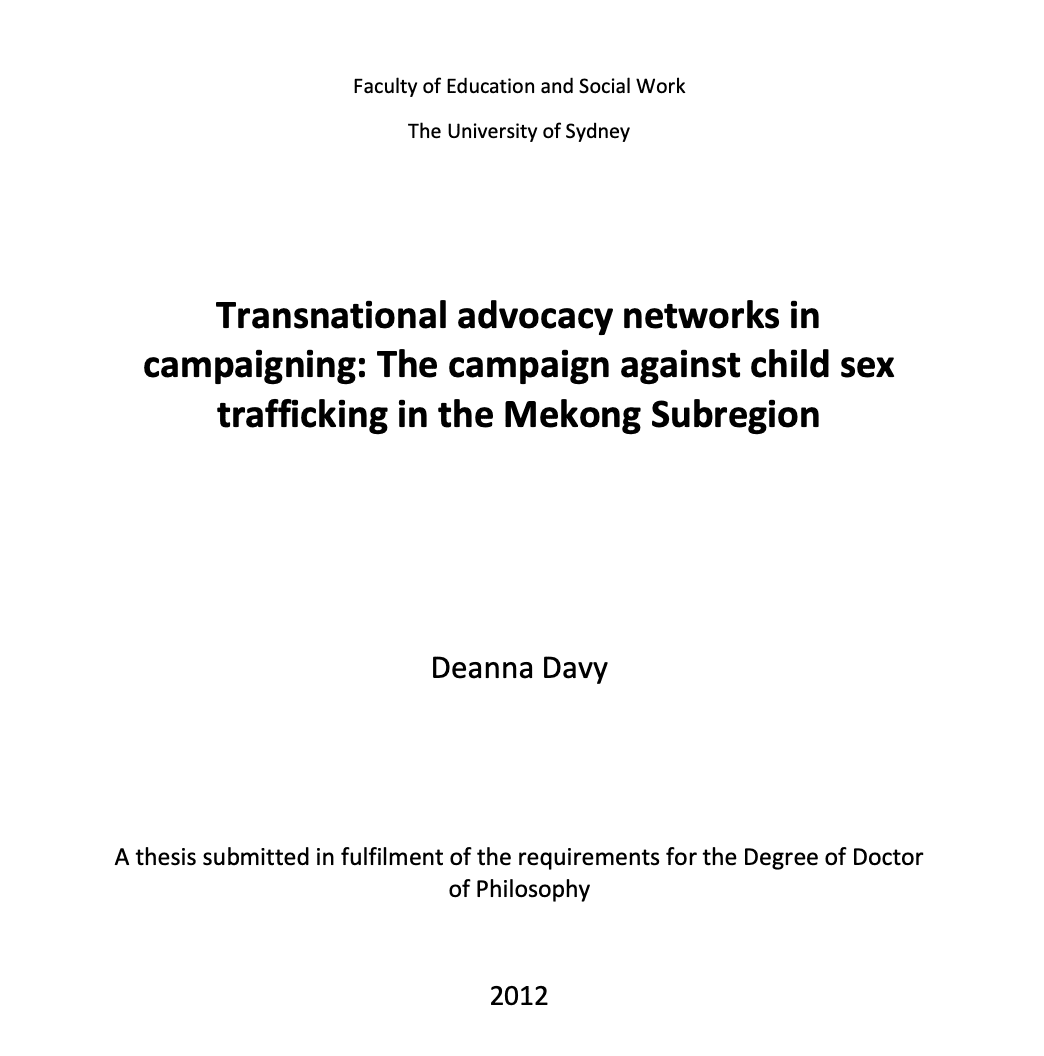
Transnational advocacy networks in campaigning: The campaign against child sex trafficking in the Mekong Subregion
ABSTRACT
The rapidly expanding market in enslaved children bought and sold for sex is one of the worst transnational crimes that appear to have been facilitated by globalisation and its many effects, such as growing disparity in wealth between North and South. Child sex trafficking has become one of the most highly publicised social issues of our time and, due to its global nature, transnational anti-trafficking advocacy networks are well placed and central to lead campaigns against it. Transnational advocacy networks (TANs) in the GMS have been integrally involved in the formation of child sex trafficking policy agendas through their involvement in transnational networks and transnational campaigns and in working with governments and the private sector. Cosmopolitan anti-trafficking advocacy in these countries has led to significant progress in the Mekong Subregion by bringing the child trafficking issue onto the global social policy agenda, resulting in new child protection legislation and improved inter-agency collaboration in the region.
This PhD research focuses on the politics, processes and effectiveness of transnational antitrafficking advocacy networks in Thailand and Cambodia. Central questions in this study are addressed. For example, how and why do anti-trafficking advocacy networks evolve? What is the ‘glue’ that binds network partners and sustains network connections over time? How do networks measure the perceived ‘effectiveness’ of the networks’ advocacy on the problem of child trafficking in the Southeast Asia region? How does North-South collaboration, and contention, and other aspects of network politics contribute to TAN effectiveness?
Research into this area is important for improving our understanding of the internal processes, mechanisms and politics and TANs, and the sustainability and effectiveness of anti-trafficking advocacy networks in combating transnational crime and promoting social justice. This research addresses the above questions through an analysis of the politics and typologies of transnational anti child trafficking advocacy networks operating in Thailand and Cambodia. Using a cosmopolitan framework the research analyses data from twentytwo semi-structured interviews with experts from anti-trafficking advocacy networks in the GMS.
Read more here.
